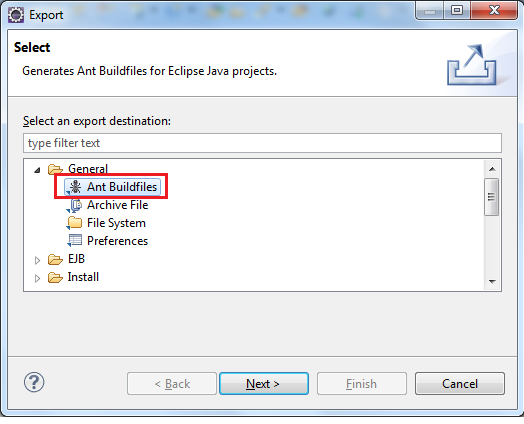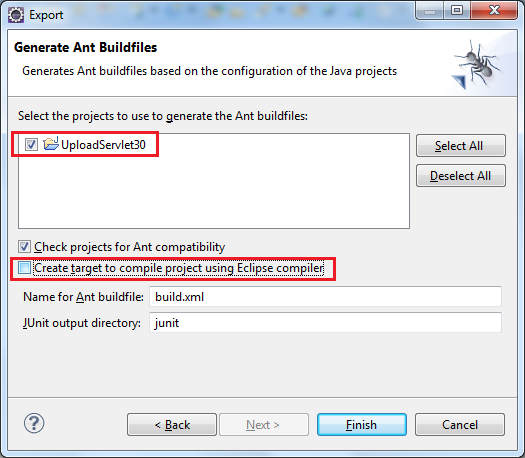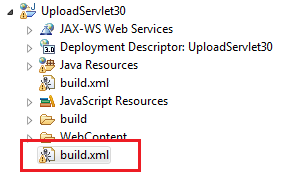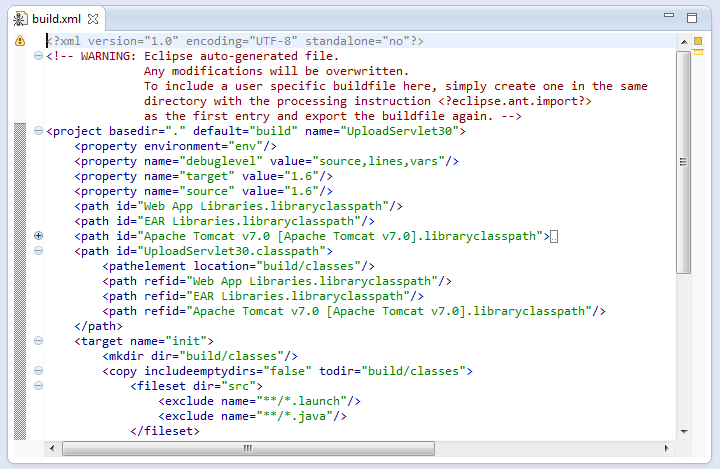From Eclipse, I found I can easily export an Ant build file for my project. It provides references to 3rd party libraries and some base targets. I'm using it from my global build file. The only thing that bothers me about this, is that if something is modified in the project structure (like adding a new 3rd party library), we have to think (yes that can be hard sometimes!) about regenerating that build.xml file. I'm wondering if anyone here knows a way to have it updated automatically. By "automatically" I mean that it would not be necessary to explicitly ask Eclipse to regenerate it every time it's needed. I don't know what could be the trigger though...
Any thoughts or knowledge on this?
Thanks!
MJ




